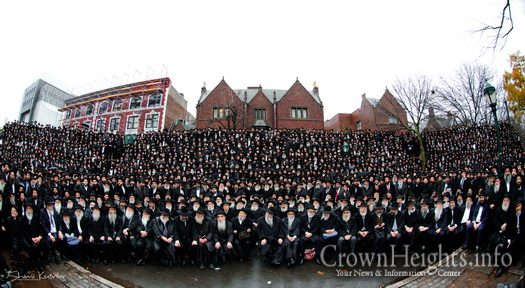
Weekly Story: Rosh Chodesh Kislev
by Rabbi Sholom DovBer Avtzon
As this Friday is Rosh Chodesh Kislev, I feel it is appropriate to speak about shlichus and dedicating our lives to fulfill the Rebbe’s wish; “The first mitzvah in the Torah is, be fruitful and multiply, which teaches us that it is incumbent upon each person to bring another Jew closer to Hashem.” Your feedback is always appreciated and welcomed.
I would like to begin with a vort that was published last week in honor of the Kinus hashluchim.
Rabbi Moshe Feller wrote an article for a publication about Chassidus. He mentioned that the Baal Shem Tov’s name is Yisroel and explained that when a person faints you shout into his ear, his name and that helps revive him.
So since the Jewish people were faint, Hashem sent the tzaddik Reb Yisroel to revive them.
Before submitting it to the publication he sent it to the Rebbe. The Rebbe instructed him to change the word shout to whisper.
Rabbi Feller noted this is the appropriate approach to our Shlichus. Yes, we may find a Jew that is weak in his observance. One may think that the way to arouse these Jews is by shouting loudly at him. So the Rebbe is informing us that is not the proper way. The way to succeed is by speaking quietly and respectfully to him.
When Reb Avrohom Hecht asked the Rebbe to explain what happened between Shemini Atzeres 5738 (1977) and Rosh Chodesh Kislev, the Rebbe told him to look at the introduction of the zohar.
There it is noted that the angel of death came to a tanna and the tanna told him, I still have much to do and he was granted an additional 15 years.
I heard from Rabbi Mangel the following thought. Rav Ashi noticed the angel of death was coming towards him. He told the angel, perhaps you were sent to take me, however, I am in midst of compiling the talmud, and I am not finished. So, therefore, you have to give me some more time. The heavenly court instructed the angel to leave him for a while.
So one of the lessons we should take from Rosh Chodesh Kislev is to accept upon ourselves to learn something (the bigger the better) and if we apply ourselves to this goal every day, Hashem will see that we are serious about accomplishing it, and may He lengthen our days as well.
It is clear to all that the shluchim are the pride of Lubavitch. Yet, many Lubavitchers including very chassidshe ones are not on shlichus. However, as the Rambam writes it is not just the tribe of Levi, but it applies to all that aspire to conduct themselves in the above-mentioned manner. the same is with us, who are not on shlichus.
While we each have our own occupation, that doesn’t mean that we can’t dedicate some of our time on a weekly basis that for that period of time we are dedicating ourselves to transcend ourselves above our own lives and focus on the Rebbe’s goal and desire that we reach out and uplift another Jew.
I heard from my father-in-law, Reb Moshe Pesach sheyiche Goldman the following:
When I was a bochur in 770, Rabbi Axelrod from Baltimore came and the hanhalah asked him to farbreng with the students.
He asked, why in this week’s parsha does Yitzchok instruct Esauv to hunt an animal and prepare it for him to eat.
He answered Yitzchok knew that Esauv was wicked and therefore didn’t deserve to be blessed. However, when he is doing what his father requested, at that moment he is righteous, and therefore at that moment is a receptacle to receive the tremendous blessings Yitzchok intended to bestow upon him,
The same is with us. during those minutes, half-hour or an hour and more that we dedicate ourselves to fulfill the Rebbe’s will, we are his shluchim, and all the blessings that are given to shluchim, will be given to us as all.
Rabbi Avtzon is a veteran mechanech and the author of numerous books on the Rebbeim and their chassidim. He can be contacted at avtzonbooks@gmail.com












